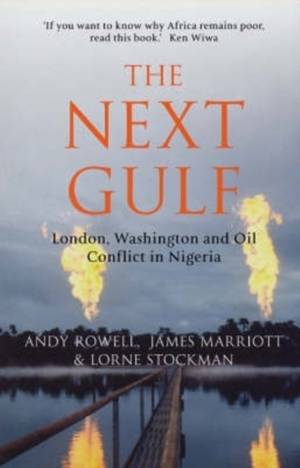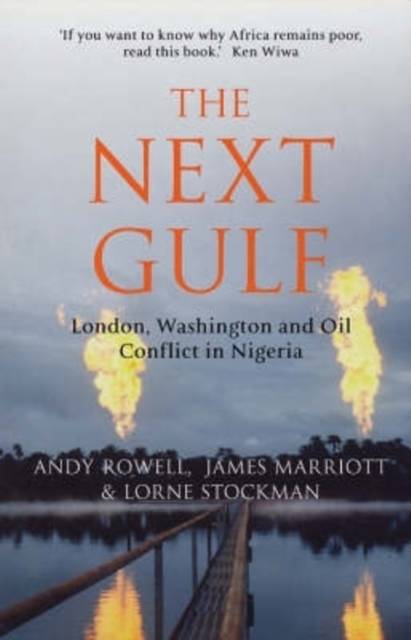
- Afhalen na 1 uur in een winkel met voorraad
- Gratis thuislevering in België vanaf € 30
- Ruim aanbod met 7 miljoen producten
- Afhalen na 1 uur in een winkel met voorraad
- Gratis thuislevering in België vanaf € 30
- Ruim aanbod met 7 miljoen producten
Zoeken
The Next Gulf
London, Washington and Oil Conflict in Nigeria
Andrew Rowell, Andy Rowell, James Marriott
Paperback | Engels
€ 41,95
+ 83 punten
Omschrijving
On November 10, 1995 the Nigerian government executed activist and author Ken Saro-Wiwa along with 8 other Ogoni activists. Their deaths brought the plight of their people and the role of British oil companies in Nigeria to the attention of the world. Ten years on, Nigeria and the other oil-producing countries of West Africa have only grown in strategic and economic importance to both Europe and the United States. The recent coup in Sao Tome and the botched attempt in Equatorial Guinea both indicate that the West is taking a much closer interest in the region. Recent history suggests that the people of West Africa will receive little benefit from the revenues from oil and gas, and that they will suffer instead from the dire environmental effects of pollution. Andrew Rowell and James Marriott here explain how western companies cooperate with local elites in West Africa to maintain control and they trace a long and ongoing history of colonial and neo-colonial exploitation.
Specificaties
Betrokkenen
- Auteur(s):
- Uitgeverij:
Inhoud
- Aantal bladzijden:
- 322
- Taal:
- Engels
Eigenschappen
- Productcode (EAN):
- 9781845292591
- Verschijningsdatum:
- 3/11/2005
- Uitvoering:
- Paperback
- Formaat:
- Trade paperback (VS)
- Afmetingen:
- 127 mm x 203 mm
- Gewicht:
- 290 g

Alleen bij Standaard Boekhandel
+ 83 punten op je klantenkaart van Standaard Boekhandel
Beoordelingen
We publiceren alleen reviews die voldoen aan de voorwaarden voor reviews. Bekijk onze voorwaarden voor reviews.








